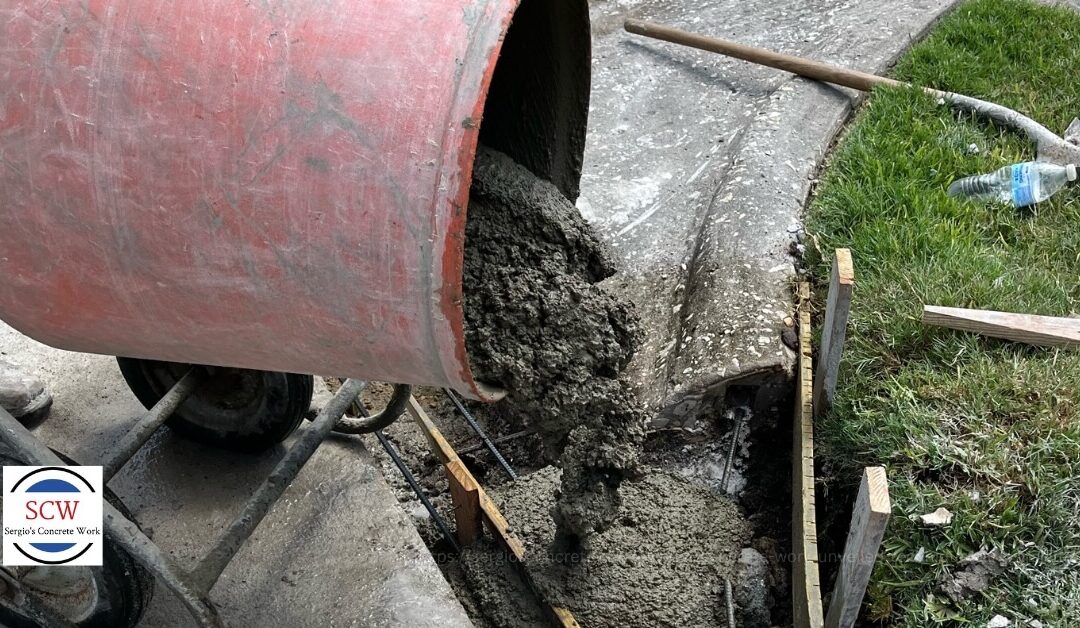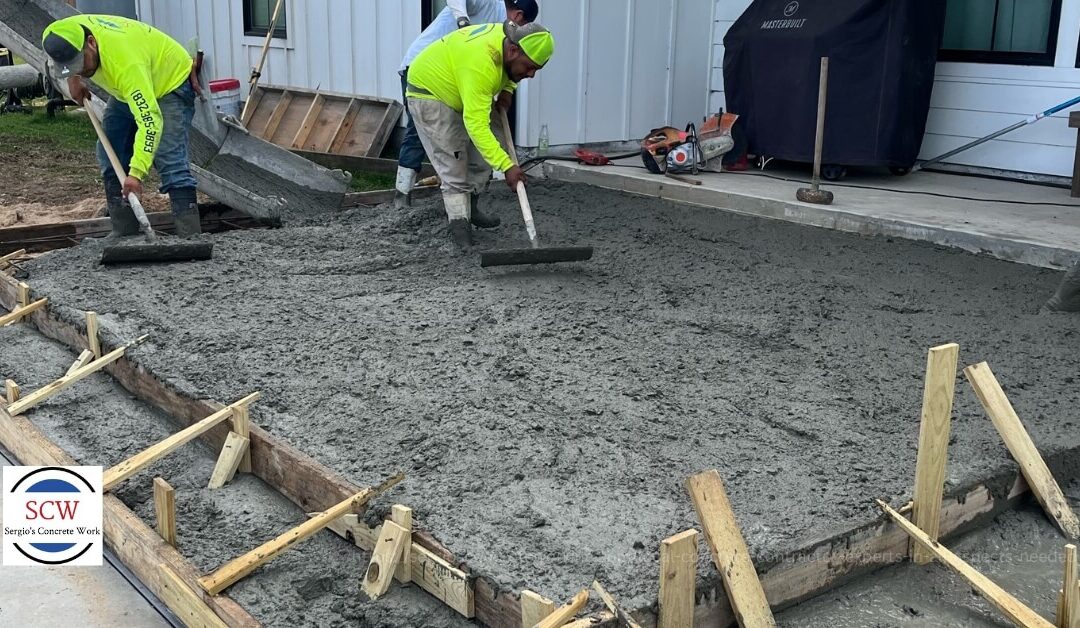As a concrete contractor, achieving success in the competitive construction industry requires more than just technical expertise. It demands a combination of skill, professionalism, and effective business practices. In this long-form blog, we will explore the top five tips that can pave the way for a concrete contractor’s success. From mastering your craft to building strong client relationships, these essential tips will elevate your career and help you stand out in the field. So, let’s delve into the world of concrete contracting and discover the keys to achieving excellence and prosperity.
Continuous Skill Development
Continuous skill development is the cornerstone of success for any concrete contractor. The construction industry is ever evolving, with new techniques, materials, and technologies emerging regularly. To maintain a competitive edge, it is crucial to invest in ongoing education and training. Attending workshops, seminars, and industry events allows you to stay updated with the latest advancements and best practices.
Mastering the Art of Concrete Work
Mastering the art of concrete work requires a deep understanding of the materials, tools, and construction techniques. Focus on honing your skills in various concrete applications, such as pouring, finishing, and decorative treatments. Additionally, learn about concrete mix designs, reinforcement techniques, and proper curing methods. A well-rounded skill set will make you more versatile and capable of tackling diverse projects.
Embracing New Technologies
As technology continues to shape the construction industry, embracing new innovations can significantly enhance your efficiency and productivity. Explore advancements like laser-guided concrete screeds, 3D modeling software, and automated equipment. Integrating modern technologies into your processes can streamline operations and deliver superior results, impressing clients and setting yourself apart from competitors.
Networking and Knowledge Sharing
Networking with other professionals in the industry can offer valuable insights and foster collaborative opportunities. Join trade associations, attend networking events, and engage with fellow contractors to exchange knowledge and experiences. By building a network of peers and mentors, you can gain fresh perspectives, share expertise, and receive support when facing challenges.
Investing in Employee Development
Your team’s skills and knowledge directly impact your business’s success. Invest in employee development by offering training programs and encouraging certifications. Empowered and knowledgeable employees will feel more motivated and confident, leading to higher-quality work and enhanced customer satisfaction.
Prioritize Safety on the Job Site Ensuring Your Team’s Well-Being
Safety is non-negotiable in the construction industry. A commitment to maintaining a safe work environment is not only an ethical obligation but also a critical factor in achieving success as a concrete contractor. Prioritizing safety protects your team from accidents and injuries, reducing downtime and costly insurance claims. Moreover, clients are more likely to trust and hire contractors who demonstrate a strong safety record.
Implementing Comprehensive Safety Protocols
Establishing and implementing comprehensive safety protocols is the first step toward creating a safe work environment. Conduct regular safety meetings with your team to discuss potential hazards and reinforce safe practices. Make sure everyone is well-versed in using personal protective equipment (PPE) and always adhering to safety guidelines.
Continuous Safety Training
Safety training should be an ongoing process for your team. Provide regular workshops and training sessions to keep your employees updated on the latest safety procedures and industry standards. Training not only enhances safety awareness but also instills a safety-first mindset within your team.
Identifying and Mitigating Risks
Identifying potential risks on the job site is essential for preventing accidents. Conduct thorough risk assessments before commencing any project. Address and mitigate identified risks through proper planning and proactive measures. By minimizing risks, you create a safer work environment and protect your team from harm.
Promoting a Safety Culture
A safety culture is cultivated through continuous reinforcement of safe practices and positive safety behaviors. Encourage open communication and feedback from your team regarding safety concerns and improvement ideas. Recognize and reward safety-conscious behavior, fostering a culture where safety is everyone’s responsibility.
Leading by Example
As the leader of your team, your commitment to safety sets the standard for everyone else. Embrace safety practices and adhere to protocols consistently. Leading by example demonstrates your dedication to the well-being of your team and creates a safer work environment.
Effective Communication Building Strong Client Relationships
Effective communication is paramount for establishing and maintaining strong client relationships. As a concrete contractor, your ability to listen to your clients’ needs, provide clear explanations, and maintain open channels of communication will set you apart from the competition.
Active Listening and Understanding Client Needs
Before starting any project, take the time to actively listen to your clients and understand their needs and expectations. Engage in detailed discussions to clarify project requirements, budget constraints, and desired timelines. By grasping your clients’ vision, you can tailor your services to exceed their expectations.
Transparent Project Updates
Keeping your clients informed throughout the construction process is essential for fostering trust and confidence. Provide regular updates on project progress, milestones, and any changes that may arise. Transparent communication ensures that your clients are aware of the project’s status and can make informed decisions along the way.
Managing Expectations
Set clear and realistic expectations with your clients from the outset. Be transparent about potential challenges and delays that may arise during the project. By managing expectations effectively, you avoid misunderstandings and ensure a smoother construction process.
Responsive and Accessible Communication
Make it a priority to be responsive and accessible to your clients. Promptly address their inquiries, concerns, and requests. Being readily available demonstrates your commitment to exceptional customer service and reinforces your dedication to client satisfaction.
Follow-Up and Feedback
After completing a project, follow up with your clients to seek their feedback and assess their satisfaction with the results. Client feedback is invaluable for improving your services and refining your approach. A proactive approach to client feedback also shows your commitment to continuous improvement.
Delivering on Time and Budget Exceeding Client Expectations
Consistently delivering projects on time and within the agreed budget is a hallmark of a successful concrete contractor. Meeting deadlines and staying within budget not only impresses clients but also enhances your reputation as a reliable and professional contractor.
Detailed Project Planning
Thorough project planning is the foundation for successful project execution. Create detailed project schedules that include all essential tasks, timelines, and milestones. Plan for contingencies and buffer time to account for unexpected delays. By having a well-thought-out plan, you can manage resources more efficiently and ensure timely completion.
Transparent Budget Estimates
Provide your clients with transparent and detailed budget estimates before commencing any project. Be upfront about costs, potential additional expenses, and how changes to the project scope might impact the budget. Transparency in financial matters builds trust and avoids disputes later on.
Efficient Resource Management
Optimizing resource management is crucial for staying within budget and completing projects on time. Effectively allocate manpower, equipment, and materials to avoid delays and unnecessary expenses. Prioritize tasks and streamline workflows to maximize productivity.
Effective Project Coordination
Smooth project coordination is essential for seamless execution. Foster collaboration and communication among your team members to ensure everyone is on the same page. Effective project coordination minimizes errors, prevents delays, and contributes to the overall success of the project.
Quality Assurance and Final Inspections
Maintaining quality standards is a top priority for successful concrete contractors. Implement a rigorous quality assurance process throughout the project, ensuring that each stage meets the required standards. Conduct final inspections to verify that the completed project aligns with the client’s expectations and specifications.
Quality Materials and Equipment Building a Strong Foundation
The quality of materials and equipment used in your projects significantly impacts the final results and client satisfaction. As a concrete contractor, investing in top-grade materials and modern equipment ensures the longevity and durability of your work.
Partnering with Reliable Suppliers
Establish relationships with reputable suppliers who offer high-quality concrete and related materials. Reliable suppliers guarantee consistent product quality, timely deliveries, and excellent customer service. Partnering with trusted suppliers enhances your credibility and reinforces your commitment to delivering top-notch work.
High-Quality Concrete Mix Designs
Choosing the right concrete mix design for each project is essential for achieving the desired results. Work closely with concrete suppliers to select mixes tailored to the specific requirements of each construction project. High-quality concrete ensures the structural integrity and longevity of your work.
Upgrading to Modern Equipment
Invest in modern, well-maintained equipment to boost your efficiency and productivity. Cutting-edge equipment, such as laser-guided concrete screeds and automated machinery, streamlines your processes and reduces manual labor, resulting in higher output and faster project completion.
Proper Handling and Storage of Materials
Proper handling and storage of materials are critical for maintaining their quality. Follow industry best practices for transporting, storing, and using concrete materials to prevent contamination or deterioration. Maintaining the integrity of materials ensures consistent results and minimizes waste.
Continuous Equipment Maintenance
Regular equipment maintenance is essential for extending its lifespan and minimizing breakdowns. Create a comprehensive maintenance schedule and conduct regular inspections to identify potential issues. Well-maintained equipment operates at peak performance, contributing to the overall success of your projects.
Conclusion:
As a concrete contractor, your path to success is paved with continuous skill development, prioritizing safety, effective communication, timely and budget-conscious project delivery, and using high-quality materials and equipment. By adhering to these five key tips, you can elevate your career and build a reputation as a reliable and proficient professional in the competitive construction industry. Embrace these best practices and watch your business flourish as you stand out as a distinguished concrete contractor.
Remember, success in the concrete industry requires not only technical proficiency but also a commitment to client satisfaction, safety, and continuous improvement. The journey to success may have its challenges, but with dedication, hard work, and a focus on excellence, you can create a thriving and prosperous concrete contracting business that leaves a lasting impact on the communities you serve.


